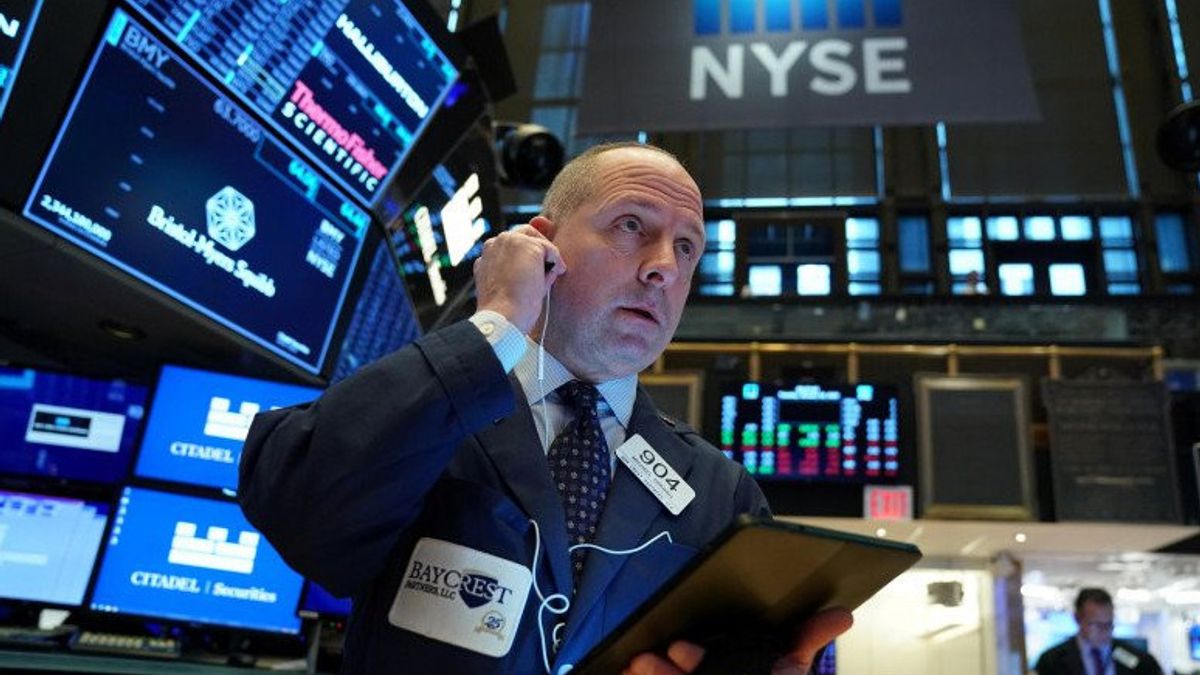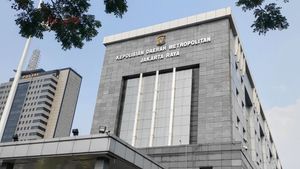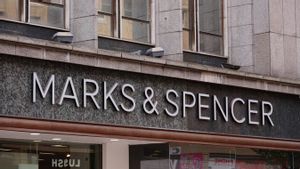JAKARTA - Wall Street shares fell in the late trading market, closing the weekend session with the biggest weekly decline since October last year. The decline in this number occurred at a time when investors were measuring the consequences of the global COVID-19 vaccine trial results.
At the same time, Johnson & Johnson found a deadlock between hedge funds, small investors, and retail investors adding to the volatility. As a result, the Dow Jones Industrial Average fell 620.74 points or 2.03 percent and closed at 29,982.62 points.
This is the first time the 30-share index has closed below the psychological 30,000-point level since December 14. The S&P 500 index fell 73.14 points, or 1.93 percent, to finish at 3,714.24 points.
Meanwhile, the Nasdaq Composite Index was sharply trimmed by 266.46 points or 2.00 percent, ending at 13,070.69 points.
The three major indexes experienced their biggest weekly losses since late October, with the Dow Jones Index losing 3.28 percent, the S&P Index dropping 3.31 percent, and the Nasdaq Index dropping 3.49 percent. For the month the Dow Jones Index lost 2.04 percent, the S&P lost 1.12 percent and the Nasdaq gained 1.42 percent.
Johnson & Johnson plunged 3.56 percent as one of the biggest compressors on the Dow and S&P500 after the drugmaker said its single-dose vaccine was 72 percent effective at preventing COVID-19 in the United States, with a lower rate of 66 percent observed globally.
The results were compared with the high standards set by the two official vaccines from Pfizer Inc/BioNTech SE and Moderna Inc, which were about 95 percent effective in preventing symptoms of disease in the main trials when given in two doses. Moderna shares surged 8.53 percent, while Pfizer shares edged up 0.11 percent.
Brief stress concerns that started earlier in the week resurfaced after an army of retail investors resumed trading in stocks such as GameStop Corp and Koss Corp, which spiked higher after brokers including Robinhood relaxed some of the restrictions they were placing on trading.
“The overall picture is that if there is bad news that suggests or indicates that there may be a long hibernation period for us to be indoors and not consuming or shopping, it tends to put the market backward and a lot of people sit inactive, especially with that news”, Said Defiance ETF's Head of Investments, Sylvia Jablonski, in New York.
"Then what happened to (Gamestop) and all that, people are a little afraid to trade".
The surge in volatility has led to an enormous volume increase, totaling more than 20 billion shares in each of the last two sessions across US exchanges for the most active trading day on record since 2014, according to Refinitiv data.
Volume across US exchanges on Friday, January 29 was 17.13 billion shares, compared with the 15.26 billion average for the full session over the last 20 trading days.
The US Securities and Exchange Commission said it was closely monitoring any potential mistakes, both for brokers and social media traders.
Market participants have speculated that the volatility caused by short-term stress has put investors' favorites including Apple Inc under pressure as hedge funds sell to cover billions of dollars in losses. Apple shares fell 3.74 percent while Microsoft fell 2.92 percent.
But while concerns about rising COVID-19 cases and erratic vaccine launches have investors worried about setbacks and increased volatility in the short term, the start of quarterly financial reports has eased some of the concerns about the overvaluation of stocks.
Of the 184 companies in the S&P 500 that have reported earnings as of Friday morning, 84.2 percent have topped analyst expectations, well above the 75.5 percent level over the past four quarters, according to Refinitiv data.
The English, Chinese, Japanese, Arabic, and French versions are automatically generated by the AI. So there may still be inaccuracies in translating, please always see Indonesian as our main language. (system supported by DigitalSiber.id)








